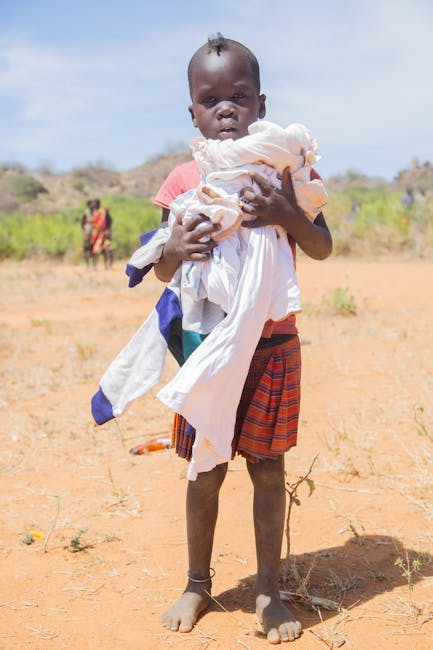
“`html
Affordable Healthcare Challenges in Rural South Africa
Introduction
Healthcare accessibility is a pressing concern in many parts of the world, but it takes on a unique and poignant form in rural South Africa. With approximately 40% of the country’s population residing in rural areas, the challenges surrounding affordable healthcare are significant. In these regions, healthcare facilities are often scarce, underfunded, and inadequately staffed, leading to a myriad of health issues that are exacerbated by socioeconomic factors. This blog post will explore the challenges of affordable healthcare in rural South Africa, focusing on the root causes and the impact on communities.
Understanding the Concept
Affordable healthcare is defined as the ability to access medical services without financial hardship. In South Africa, the healthcare system is bifurcated into public and private sectors, with the public sector catering primarily to low-income populations. According to the Statistics South Africa, millions of South Africans rely on public healthcare services, which are often overwhelmed by demand. In rural areas, the situation is dire, with many clinics lacking essential resources.
Statistics indicate that only about 1.5% of healthcare spending in South Africa goes to rural health services, despite about 25% of the population living in these areas. This disparity highlights the urgent need for systemic changes to ensure that affordable healthcare is more than just a concept, but a reality for all.
Real-World Examples
To illustrate the challenges faced by rural communities, consider the following two case studies:
- The Case of the Eastern Cape: The Eastern Cape is one of the poorest provinces in South Africa, with healthcare facilities struggling to meet the needs of the local population. Many residents travel over 50 kilometers to reach the nearest clinic and may wait in long lines for basic services. According to a report by South Africa’s Department of Health, this province has faced a shortage of healthcare professionals, with a ratio of only 0.6 doctors per 1,000 people.
- The Rural Limpopo Experience: A community in Limpopo recently faced an outbreak of tuberculosis, exacerbated by the lack of accessible healthcare. Local clinics were unable to provide adequate treatment due to shortages of medications and staff. This situation led to increased transmission rates and further strained the already limited healthcare resources. As reported by the World Health Organization, rural areas like Limpopo are often left vulnerable to health crises due to systemic inequities.
Benefits and Challenges
While there are initiatives aimed at improving healthcare access in rural South Africa, several challenges persist. Here’s a breakdown of the advantages and disadvantages:
Benefits
- Community Health Programs: Many NGOs and local organizations work tirelessly to provide healthcare services, education, and outreach programs that cater specifically to rural populations.
- Mobile Clinics: Some regions have implemented mobile health clinics that travel to remote areas, providing essential services and screenings that would otherwise be inaccessible.
- Increased Awareness: Growing awareness of rural health challenges is leading to discussions about policy reform and investment in healthcare infrastructure.
Challenges
- Resource Limitations: Many rural clinics operate with insufficient medical supplies and staff, making it difficult to provide adequate care.
- Transportation Barriers: Patients often lack the means to travel long distances to receive healthcare, leading to delayed treatment and worsened health outcomes.
- Stigma and Cultural Barriers: In some communities, cultural beliefs may prevent individuals from seeking medical help, particularly for mental health issues.
Expert Opinions & References
Healthcare experts emphasize the need for a multifaceted approach to address the challenges faced in rural South Africa. Dr. Glenda Gray, a prominent researcher, has stated that “Investing in rural healthcare is not just a necessity; it’s a moral obligation.” This sentiment is echoed in various reports, including those from the United Nations and WHO South Africa, which advocate for equitable healthcare solutions that prioritize vulnerable populations.
Additionally, the South African government has pledged to improve healthcare access through initiatives like the National Health Insurance (NHI) scheme, which aims to provide comprehensive healthcare to all citizens. However, the efficacy of these programs often depends on adequate funding and implementation at the local level.
FAQs
1. What are the primary barriers to healthcare access in rural South Africa?
The main barriers include insufficient healthcare facilities, lack of trained medical professionals, transportation issues, and financial constraints. Many residents find it difficult to reach clinics due to long distances and inadequate public transport.
2. How does the South African government address these challenges?
The government has initiated programs like the National Health Insurance (NHI) to improve healthcare access. However, the implementation remains a challenge due to funding and resource allocation.
3. Are there any successful models of healthcare delivery in rural areas?
Yes, some regions have successfully implemented mobile clinics and community health workers to improve access to healthcare services. These models focus on addressing local needs and increasing awareness.
4. What role do NGOs play in rural healthcare?
Non-governmental organizations play a crucial role by providing essential healthcare services, education, and advocacy. They often fill gaps left by the public healthcare system, particularly in underserved areas.
Final Thoughts
The challenges of affordable healthcare in rural South Africa are complex and multifaceted. Addressing these issues requires collaboration between government entities, NGOs, and the communities themselves. As awareness grows and more stakeholders engage in dialogue, there is hope for improved healthcare access that can lead to healthier, thriving rural populations. By investing in infrastructure, training healthcare professionals, and fostering community involvement, South Africa can pave the way for a more equitable healthcare system that benefits all its citizens.
“`
https://images.pexels.com/photos/33763150/pexels-photo-33763150.jpeg?auto=compress&cs=tinysrgb&h=650&w=940
